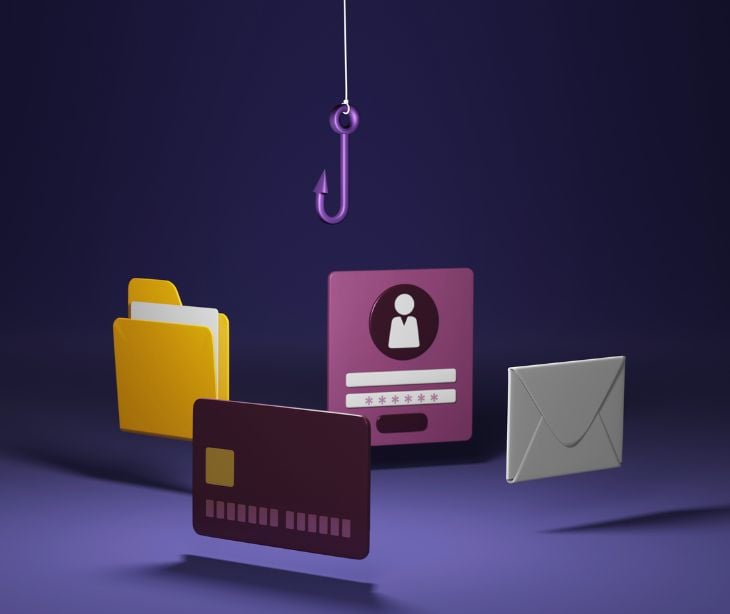
A quid pro quo attack is a low-level attack in which attackers lure users to acquire private or sensitive information. Malicious actors carry out these attacks by persuading people to avail of their technical services. These services usually require a user to share sensitive information, and enables hackers to access the target’s devices to implant malware.
Understanding quid pro quo attacks
The term "quid pro quo" is derived from Latin and means "something for something." In cyberattacks, a quid pro quo attack involves an exchange of value, where the attacker demands something valuable from the victim in return for a promised benefit. Quid pro quo attacks can take several forms, including extortion, social engineering, and bribery.
Extortion
In an extortion-based quid pro quo attack, the attacker gains access to sensitive personal data, such as photos, messages, or browsing history. They then threaten to release this information publicly unless the victim pays a ransom. This attack can lead to financial fraud, identity theft, or exploitation.
Social engineering
Social engineering is another common strategy employed in quid pro quo attacks. In this scenario, the attacker creates an urgent situation, such as an emergency or a time-sensitive bill, to immediately manipulate the victim into providing money or personal information. The sense of urgency and pressure often cloud the victim's judgment, leading them to act impulsively.
Bribery
In some cases, attackers may offer the victim monetary payment, gifts, access to exclusive opportunities, or other benefits in exchange for sensitive data, inappropriate photos/videos, or meetings. This form of attack preys on the victim's greed or desire for personal gain, ultimately leading to their exploitation.
Go deeper:
How to protect yourself from quid pro quo attacks
With the increasing prevalence of online scams and attacks, it is important to take proactive measures to protect yourself from quid pro quo attacks. Adopting a vigilant and cautious approach can reduce the risk of falling victim to these schemes. Here are some effective strategies to safeguard yourself:
Be skeptical
Vigilance is key when it comes to quid pro quo attacks. Be wary of any unexpected emails, calls, or messages that make bold offers or threats. Look for signs of a scam, such as urgency, unclear details, grammatical errors, or unusual requests. Ask yourself whether a legitimate company or person would reach out in such a manner.
Verify identities
When receiving unsolicited phone calls, refrain from providing personal information. Legitimate entities, such as your bank, will already have your details and will not randomly call to confirm them. Hang up and call back using the official number to ensure the call's authenticity.
When it comes to emails, verify links by hovering over them and checking if they match the official website. Avoid opening attachments from unknown senders to prevent the risk of malware.
Secure your social media
Keep your social media profiles locked down to limit the information available to potential attackers. Adjust your privacy settings to prevent strangers from sending you direct messages, and avoid oversharing personal details publicly.
Use strong passwords and two-factor authentication
Protect your online accounts by using strong, unique passwords. A strong password should contain a combination of letters, numbers, and special characters. Additionally, enable two-factor authentication (2FA) whenever possible to add an extra layer of security to your accounts.
Backup your data
Regularly backing up your data mitigates potential damage caused by quid pro quo attacks. Attackers may sometimes encrypt your files and demand payment for the decryption key. You can restore your files without paying the ransom by maintaining up-to-date backups.
Exercise caution with online transactions
Never send money, gift cards, or sensitive information to strangers online. Legitimate organizations or individuals would not initiate contact in such a manner. If you wish to make a donation or support a cause, verify the authenticity of the organization and donate through their official website.
Keep software and devices updated
Regularly update your operating system, antivirus software, and other applications to ensure you have the latest security patches. Hackers often exploit vulnerabilities in outdated software to gain access to your devices.
Subscribe to Paubox Weekly
Every Friday we bring you the most important news from Paubox. Our aim is to make you smarter, faster.




